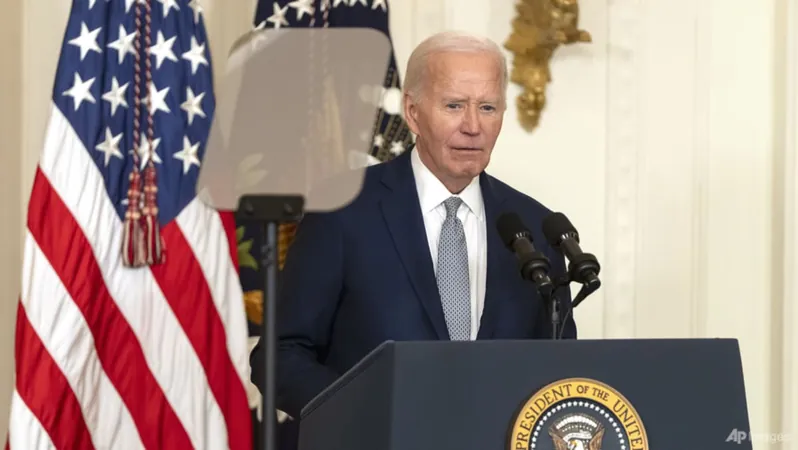
Nippon Steel and US Steel Challenge Biden's Block on Merger: A Battle for the Future of American Steel
2025-01-06
Author: Arjun
In a dramatic turn of events, Nippon Steel and US Steel have taken legal action against President Joe Biden's administration, following his decision to block their ambitious $14.9 billion merger. The lawsuit was filed on Monday, January 6, in the US Court of Appeals in Washington DC, with both companies accusing the administration of "illegal interference" and making it clear that political motivations, rather than legitimate national security concerns, spurred the decision to halt the deal.
The steel giants issued a statement asserting that the legal action aims to rectify what they describe as an ongoing "illegal interference" with the proposed acquisition. They accuse President Biden, who is set to leave office on January 20, of bypassing the established legal frameworks to curry favor with labor unions and further his political agenda. This claim highlights the tense intersection of business interests and political maneuvering in the high-stakes world of American manufacturing.
Previously, the Biden administration had expressed reservations about the merger for several months, mindful of the implications such a decision could have for US-Japan relations. However, the President ultimately declared the deal a threat to national security, a justification that has sparked outrage from both companies and officials in Japan.
According to Nippon Steel and US Steel, the Committee on Foreign Investment in the United States (CFIUS) failed to conduct a thorough and fair review of the merger, a process they argue was marred by a lack of good faith. They are now seeking a court order for a fresh review of the merger, confident that they can prove the motives behind the block were not in line with legitimate security concerns.
Adding fuel to the fire, Japanese Prime Minister Shigeru Ishiba has voiced his concerns that Biden's decision could deter future investments from Japan, urging the US to clarify its position. The stakes are particularly high as this merger is a critical topic in the 2024 presidential campaign, especially given US Steel's historical significance in Pennsylvania's economy—a key state that could swing the upcoming elections.
Takahiro Mori, vice chairman of Nippon Steel, expressed his firm resolve in defending the interests of both companies, stating, "We will not back down after being treated unreasonably. We will fight tooth and nail." This battle is more than just a legal dispute; it encapsulates a larger narrative about the evolution of American manufacturing, the role of foreign investment in the economy, and the complex dynamics of international relations under pressure.
As the legal proceedings unfold, all eyes will be on how this case could redefine the landscape of steel production and foreign investments in America—and whether the Biden administration will stand firm on its national security concerns or reconsider its approach. This conflict may not only influence the steel industry but could also set a precedent for how international mergers are perceived and treated in the future.
 Brasil (PT)
Brasil (PT)
 Canada (EN)
Canada (EN)
 Chile (ES)
Chile (ES)
 Česko (CS)
Česko (CS)
 대한민국 (KO)
대한민국 (KO)
 España (ES)
España (ES)
 France (FR)
France (FR)
 Hong Kong (EN)
Hong Kong (EN)
 Italia (IT)
Italia (IT)
 日本 (JA)
日本 (JA)
 Magyarország (HU)
Magyarország (HU)
 Norge (NO)
Norge (NO)
 Polska (PL)
Polska (PL)
 Schweiz (DE)
Schweiz (DE)
 Singapore (EN)
Singapore (EN)
 Sverige (SV)
Sverige (SV)
 Suomi (FI)
Suomi (FI)
 Türkiye (TR)
Türkiye (TR)
 الإمارات العربية المتحدة (AR)
الإمارات العربية المتحدة (AR)